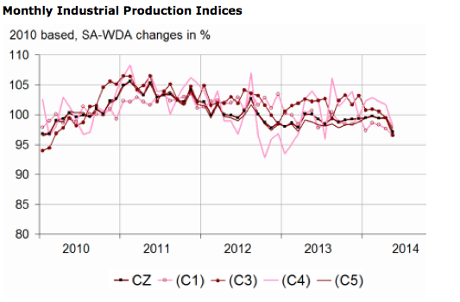Global economic activity should strengthen in the second half of the year and accelerate in 2015, although momentum could be weaker than expected, Christine Lagarde, head of the International Monetary Fund, said on Sunday, hinting at a slight cut in the fund's growth forecasts.
Lagarde said central banks' accommodative policies may have only a limited impact on demand and that countries should boost growth by investing in infrastructure, education and health, provided their debt stays sustainable.
The IMF's update of its global economic outlook, expected later this month, will be "very slightly different" from the forecasts published in April, she said.
In April, the IMF had predicted that global output would grow by 3.6% in 2014 and 3.9% in 2015.
"Global activity is picking up but the momentum could be less strong than we had expected because potential growth is weaker and investment ... remains subdued," she told an economic conference in southern France.
Lagarde made a plea for more public investment, saying that the "investment deficit" in both the public and private sectors was dragging down growth in most countries.
"Despite the many responses to the crisis ... recovery is modest, laborious, fragile, and measures to boost demand, despite the goodwill of central banks, will find their limits," she said.
"We must therefore take steps to boost efforts to strengthen growth. This is the opportunity in a number of countries to relaunch investment, without threatening the viability of public finances."
Lagarde said several times in her speech that, although now could be the time for some countries to boost public investment, not all of them could afford to do so. The positive impact of public investment on growth could be strong enough to allow for some state projects without weighing on debt-to-GDP ratios.
After a first quarter that was more disappointing than expected, there was now a marked rebound in the US economy, she said. Growth should accelerate as long as the Federal Reserve's withdrawal from its easy monetary policy is orderly and there is a precise medium-term budget framework.
The eurozone is slowly coming out of recession and it is crucial that countries continue to carry out reforms, including completing the banking union, she said.
Lagarde added that the IMF did not expect a "brutal" slowdown in China.
"Looking at emerging Asian countries, and in particular China, we are reassured because we do not see a brutal slowdown but rather a slight slowing of a growth that has become ... more sustainable and that we see at 7-7.5% this year."







